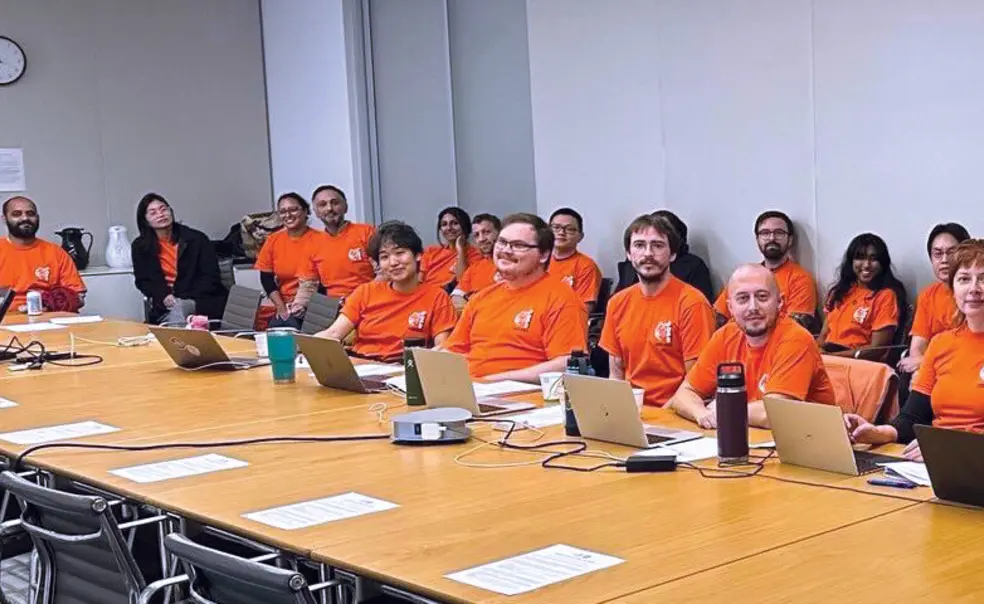After Rocky Start, University and Postdocs Union Begin Negotiations
Since December, the University and a seven-person bargaining unit representing the new postdoctoral researchers and scholars union at Princeton have been meeting regularly to negotiate a contract. The negotiations began after two failed attempts in the fall.
Princeton University Postdocs and Scholars, a union affiliated with United Auto Workers, was formed when nearly 85% of the 573 postdocs who voted last spring supported the union (484-89), according to the National Labor Relations Board (NLRB).
Its first meeting with the University was supposed to be Oct. 29, but the two parties disagreed over the presence of observers — i.e. postdocs who are not part of the bargaining committee — and as a result, University representatives refused to enter the meeting room. Despite a petition signed by nearly 200 postdocs in support of open bargaining, the next scheduled meeting, on Nov. 12, had the same result.
Lacy Feigh, a member of the bargaining unit and a second-year postdoc in the Society of Fellows studying history, said observers attending meetings “is something that is an industry standard” in higher education unions. One of the union’s goals is “to show the University that this is not something to be frightened of, that actually the University should want its employees to be concerned with their employment and to participate in workplace governance.”
University spokesperson Jennifer Morrill told PAW via email that the National Labor Relations Act does not include nonparticipant observers, and in addition, the NLRB Office of the General Counsel has said that observers may impede collective bargaining. “The presence of many nonparticipant observers in bargaining sessions is likely to result in disruptions that slow down meetings … ,” she wrote.
Princeton has hired outside counsel Fisher & Phillips LLP for the negotiations, according to Morrill.
After mutually agreeing to five observers, both parties came to the table on Dec. 3, when they discussed ground rules, and the bargaining unit presented initial bargaining proposals and goals, which include higher wages, increased access to affordable housing, better benefits, and enhanced academic freedom and intellectual property rights.
Feigh said it was great to “start talking about mandatory subjects of bargaining and things that really matter to our members.”
During the meeting, about 25 postdocs quietly protested for open bargaining outside the room with signs. Jessica Ng, a postdoc in the High Meadows Environmental Institute’s Environmental Fellows program and a protest participant, said she was approached by a University free speech facilitator within minutes and told the group’s signs violated policy. They continued protesting outside the room without signs.
“The sort of impression that this left on the postdocs who were there I think was quite frustrating, and it felt quite disrespectful to first be excluded from the bargaining room, and then feel like our ability to express our discontent with that was also being suppressed by the University,” said Ng. “So I think a lot of postdocs left that whole incident feeling more invigorated and enthusiastic about being an observer … .”
Conversations continued at a meeting on Dec. 10, when a first tentative agreement was reached on severability, meaning if a court finds any part of the forthcoming agreement invalid, the rest will still hold. No protests were held.
“I’m just excited to finally have this process going,” said Feigh. “It seems like there had been quite a delay, and … I hope that we can continue to make substantive progress … and really move toward a quick and fair contract for our unit.”
“The University is committed to negotiating a fair contract that is consistent with its desire to continue to provide a work environment where postdoctoral researchers and associate research scholars grow as scholars and contribute to Princeton’s world-class research programs and overall academic mission,” Morrill wrote.
The next meeting was scheduled to take place on Jan. 14, after this issue of PAW went to press.












No responses yet